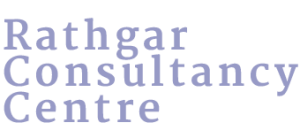Anxiety disorders, along with depression, are the most common mental health problems amongst the Irish population today. It is estimated that 1 in 9 Irish people will suffer from an anxiety disorder in their lifetime, thus people suffering from anxiety should reassure themselves that what they are experiencing is common, and is not anything to feel ashamed about.
Anxiety is the body’s and mind’s reaction to threat and danger. It is a natural, protective emotion that is designed to drive us into action to protect ourselves through “fight or flight”. Anxiety is thus a natural instigator of action often driving us to achieve etc. It is therefore not always an adverse experience. It is very physical in nature, in that fear engendering thoughts lead to a plethora of reactions in the body designed to give the individual the optimum chance of survival through fight, flight or freeze. Adrenaline is flooded through the system leading to a number of physical reactions including a faster heart beat, blood rushing to muscles, a diversion of energy from the stomach and excretory systems to the heart and muscles etc. While all these reactions are appropriate to immediate threat, they are not appropriate to future based threat that may or may not happen.
As Mark Twain famously said “I have been through some awful things in my life, some of which have actually happened.”
At times like this, anxiety can go into “overdrive” and be excessive. It is like as if the signal from the brain to alert the body that the threat has passed misfires or does not fire at all, and the individual is left in a constant state of high alert. This results in constant muscle tension, tremors, dizziness/lightheadedness, stomach upset, numbness in the fingers, difficulty breathing and swallowing, bladder problems etc.
In this state of anxiety the individual lives in a constant state of worry either about their current situation, or more commonly about a perceived threat of danger in the future. They worry constantly and experience the anxiety as debilitating. Individuals experiencing this level of anxiety should seek help.
Cognitive Behaviour Therapy is an evidence based therapy that is believed to be most effective for this condition. It targets exaggerated thoughts of danger, with their commensurate avoidance or safety seeking behaviours, and therapist and client work in a collaborative way with the aim of breaking the vicious cycle. By challenging the distorted thoughts of threat, and learning to balance them with thoughts more attuned to reality, as well as gradually taking away safety behaviours that only perpetuate the distorted thinking in a vicious cycle, the individual returns to a place of calm.
Panic Attacks
Panic attacks are an all consuming experience that leave the sufferer exhausted and full of dread. The experience is shocking, and naturally engenders a state of fear in the individual concerned that they will experience another one, and so increasingly they live in the “fear of the fear”. During the attack they are filled with a sense that they are losing control and may faint or maybe even die e.g. of a heart attack, suffocation. This is as a result of the large doses of adrenaline entering their systems suddenly, causing strong palpitations, rapid breathing together with a feeling of being unable to breathe, chest pain, dizziness, sweating,ringing in the ears and hot or cold flushes. As panic attacks usually come completely out of the blue, and with no apparent cause, sufferers feel acutely vulnerable. Again Cognitive Behaviour Therapy is an extremely successful approach in the treatment of panic attacks, challenging both the fear thoughts and over-catastrophisation of bodily sensations, as well as removing avoidant and safety seeking behaviours that perpetuate the cycle. Given the debilitating effect panic attacks have on sufferers lives leading them to avoid an ever increasing number of places and situations, treatment should be sought as soon as possible.
Panic Attacks and Anxiety are very treatable using CBT, so don’t suffer in silence, phone 087 436 0032 for an assessment and proposed treatment plan.

